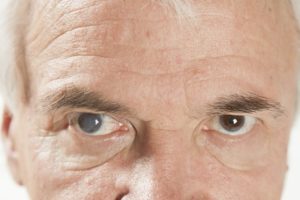 Cataracts is the clouding of the lens of the eye. A person living with cataracts has a difficult time seeing as images appear foggy, blurry, or distorted.
Cataracts is the clouding of the lens of the eye. A person living with cataracts has a difficult time seeing as images appear foggy, blurry, or distorted.
Picture looking through a window that is fogged up – that would give you some idea of how a cataracts patient sees the world.
Advertisement
Cataracts can be removed through surgery, which is deemed relatively safe with minimal complications. Without the removal of cataracts, a person will have difficulty seeing, and this can interfere with a person’s daily activities.
Another good reason to remove your cataracts has to do with your bone health.
Recent research looked at the potential impacts of cataracts and cataract surgery on bone health including osteoporosis risk and risk of fractures.
The study looked at 57,972 cataract patients who were matched with 57,972 healthy controls. During an average follow-up of 6.4 years, 17,450 patients developed osteoporosis or fractures in the cataract group and 12,627 in the control group.
Having cataracts was associated with a 29 percent higher risk of developing osteoporosis or fracture.
Among those patients who underwent cataract removal surgery, they experienced a 42 percent reduced risk of osteoporosis or fracture.
First author of the study Dr. Huei-Kai Huang explained, “Appropriate management of cataracts may decrease osteoporosis and fracture risks.” Co-author Dr. Ching-Hui Loh added, “I strongly recommend all elders with osteoporosis or fractures to check their vision.”
Advertisement
Cataract surgery works by removing the clouded lens and replacing it with a clear artificial lens known as an intraocular lens. This new lens becomes a permanent part of the eye.
Post-surgery, you may experience a few days of discomfort, but soon you will be carrying out your regular activities once more.
Also read:
- Can osteoporosis be reversed? 12 natural ways to treat osteoporosis
- Prevent cataracts naturally: Home remedies and diet
- Glaucoma vs. Cataract: Difference in Causes, Symptoms, and Treatment
